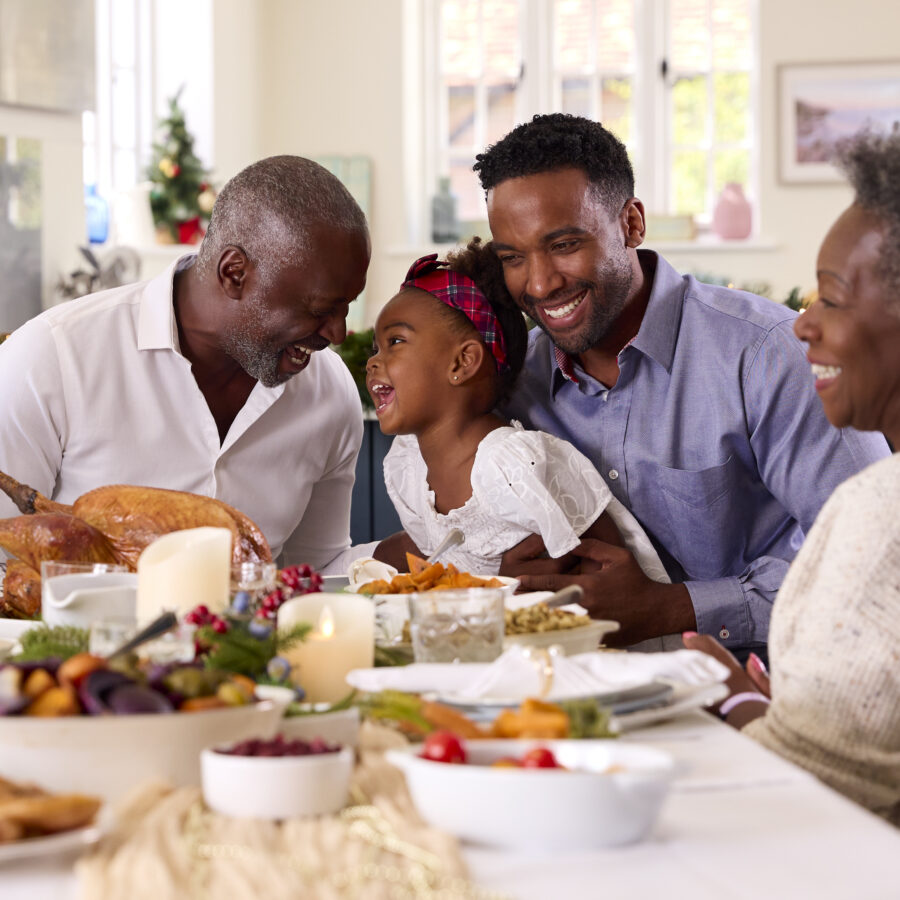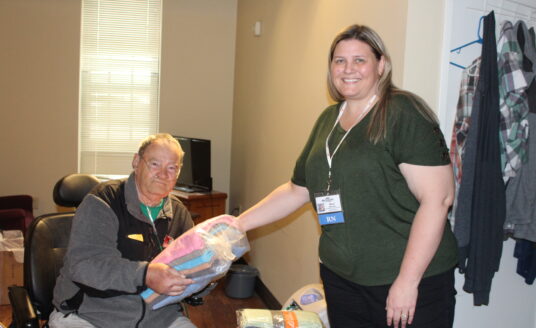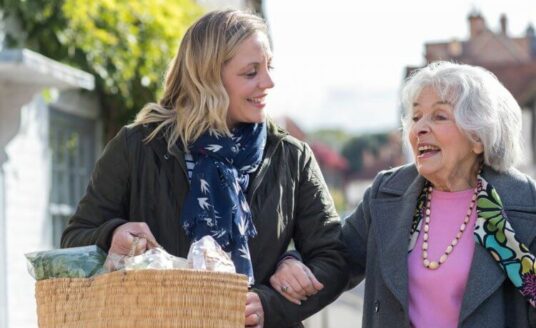Managing diabetes in seniors can become especially challenging during the holidays, considering the frequent get-togethers that often feature plenty of high-carb, high-calorie foods.
But for seniors with diabetes, neglecting the dietary management requirements can have serious consequences, including:
- Increased risk for infections and injuries
- Accelerated muscle loss
- Damaged kidneys
- Increased risk for Alzheimer’s disease
- Increased risk for heart attack or stroke
- Vision loss
- Persistent pain
- Nerve damage
- Limb amputation
Don’t worry, though — there are ways for you or your senior loved one to still enjoy holiday foods this season without putting yourself at risk!
Tips for Holiday Eating
When someone living with diabetes understands how to manage the disease, they are better prepared to make wise food choices during the holidays.
Carbohydrate control is key to managing diabetes in seniors successfully. However, this doesn’t mean you have to eliminate all carbs from your diet. The carbohydrate’s main function is to provide the body with energy. Carbs also affect blood sugar and insulin levels, support digestion, aid in the absorption of other nutrients, and help us feel satisfied after eating.
“Good carbs” can be found in fruit, vegetables, quinoa, whole-grains, sweet potatoes and legumes, and do not cause spikes in blood glucose levels.
The carbs that do cause blood glucose levels to rise are found in sugary drinks, pasta, white rice, sweetened cereals, almost all processed foods and, of course, the cakes, pies, cookies and other sweet treats that are so prevalent during the holidays!
A low-fat diet is also recommended for people with diabetes. Fat can cause insulin resistance, which results in glucose building up in the blood. But, as with carbs, this doesn’t mean that people with diabetes should completely eliminate fats.
Eaten in moderation, foods like avocados, dates, nuts, seeds, and fatty fish such as salmon, trout, mackerel, and sardines, won’t increase insulin resistance.
Exercise during the holidays. Regular exercise stabilizes blood glucose levels. It is important for senior adults to maintain their exercise regimen during the holidays. If you are attending a holiday celebration, invite a friend to take a walk with you during or after the party.
Plan ahead for the buffet table. It could be quite helpful to find out what is going to be served, so you can start planning your menu. Also, ask about the approximate time that the food is scheduled to be served. This will determine if you or a senior loved one should eat a snack before attending to avoid blood glucose levels dropping too low.
Keep this top of mind: people with diabetes should not skip meals, thinking that they can overindulge later in the day. This could cause a severe blood glucose level drop, to be followed by an unsafe spike later on after eating too much rich food.
Fill a small plate with healthy foods. It’s wise to consume vegetables, fruits, lean meats or fish first. This will take an edge off of your hunger pains and make resisting or limiting the intake of less healthy foods easier later on.
Eat slowly. Savor the food on your plate. Slowing down will make you feel full sooner. This will also help you avoid second helpings. Plus, you’ll be able to be more engaged in conversations.
Watch your alcohol consumption. If you drink, have a glass of wine, and avoid the hard-liquor or sugar-filled beverages often served at holiday gatherings.
Make some choices during your meal. If you would like a small piece of pie later, for example, avoid the mashed potatoes and other carbs. Aim to have a balanced diet throughout the course of the day.
Move away from the food table after filling your plate. The sight and smell of food can increase your appetite. Find some place a little farther away. Strike up a conversation with someone and enjoy the festive atmosphere. Make food a valued but secondary consideration.
Continue to monitor your health and take medications as prescribed. It’s easy to get distracted and off-schedule during holidays, but managing diabetes in seniors requires regular monitoring and a commitment to staying on track with medications. It is essential to regularly monitor blood glucose levels, as holiday foods can cause these levels to soar dangerously. Caregivers can help in this effort by encouraging their senior loved one to be consistent with self-care during the holidays.
Bring something healthy to the gathering. If the menu items appear to be off-limits for someone with diabetes, ask if you could bring a dish or two to the celebration.
If you overindulge, get back on track. Feel like you ate too much rich or fatty foods at the gathering? Don’t let it discourage you or give you the idea that you might as well keep overindulging.
Living with diabetes, especially during the holiday season, can be challenging, but it can also be effectively managed. For more information on living with diabetes, visit the American Diabetes Association.
Looking for more Health & Wellness content? Visit our blog.
Want to find out more?
If you’d like to stay up to date with Bethesda Health Group, sign up here to receive our blog and newsletters!
"*" indicates required fields
Related Articles
Want to find out more?
If you’d like to stay up to date with Bethesda Health Group, sign up here to receive our blog and newsletters!
"*" indicates required fields



